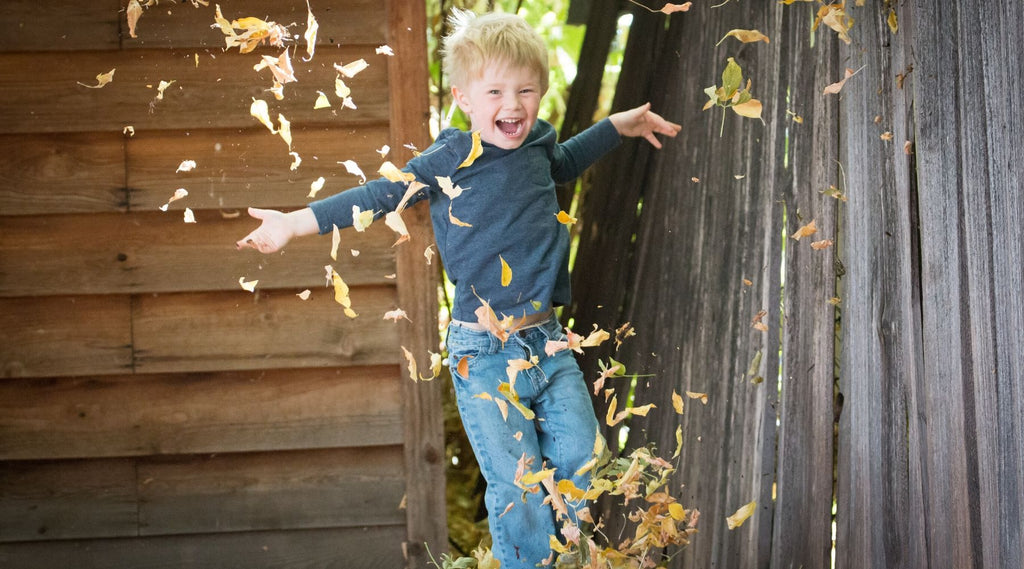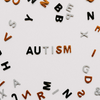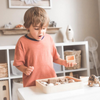Reducing Anxiety While Homebound with Children with Autism

Keep Calm and Carry On
One of the key factors of autism is anxiety. Maintaining a calm atmosphere in the home, even if you are stressed, can be helpful. Remember that people who have autism are very visual. Therefore, presenting a calm demeanor can help ease the stress a person with autism may feel.
Children may have questions about what is occurring both locally and globally, and sometimes they ask them at the worst times. While you owe them an answer, you do not necessarily owe them an immediate response. Let them know a better time for the conversation, collect your thoughts, and then answer their questions when you are prepared to do so.
Avoid answering questions in analogies or idioms (i.e., “Grandma is under the weather”). Be honest, explain clearly, and respond at an appropriate level for their ages. Kids deserve the truth.
Remember, all feelings are valid. Try to acknowledge a child’s feelings and talk about them rather than mistakenly disregarding them. For example, if a child says he/she is scared, rather than telling the child there is no need to feel that way, validate the child’s feelings by telling him/her it’s okay to be scared and offer to talk about why he/she is feeling that way.
To help reduce anxiety in the home, avoid watching a 24-hour news channel or even the nightly news when children are present, as it can perpetuate a feeling of ‘doom and gloom.’ Give children one daily news update if they would like it, and talk about all types of news, not just that related to coronavirus. Try to include positive news you hear, especially any good news that might be local and familiar to your child.
Maintain a Regular Schedule
For many families, working from home and keeping kids home from school during this uncertain time means adopting new schedules and routines, which can cause increased anxiety and stress. If these changes have made it impossible to maintain your family’s normal routine, setting a new schedule and making it the new routine may be important for your success in the home.
Individuals with autism usually find schedules and routines comforting because they can better predict daily transitions and changes in activities. Create a visual daily or weekly schedule that will be followed. Where appropriate, create a schedule to reflect as many of the activities that were being done outside of the home as possible, such as those in the child’s school or other therapeutic environment.
The activities do not need to have clinical value; simply being engaged is the critical part. Simple board games and craft projects can serve to provide interactive activities. Assisting with food preparation can also be incorporated into the schedule. Remember that “play time” can also be an activity. The key is to have interactive content, where reasonable, provided on a regular and consistent basis.
Children tend to be like a pressure cooker—tension builds until it explodes. It’s best to release the tension slowly throughout the day. Create a list of “go-to” activities that can be used when you sense increased anxiety or restlessness in your child. Break up the day with these activities when children start to lose focus or become frustrated. Showers, hot baths, or running water can also help to regulate and calm children. Besides, extra soap and water during this time is a good idea anyway!
Because these are uncertain times and even adults can become increasingly anxious amidst the evolving uncertainties as this situation continues, children need certainty and to maintain a sense of control. Children given a choice of approved activities will also have a sense of control.
Find a Healthy Release for Anxiety
Physical activity is essential to avoid ‘cabin fever.’ Even if you are sick or not feeling well, go outside on the porch or to the backyard. Throw a ball, play with the dog, whatever you can to remain active, and get fresh air and sunlight.
Many businesses are offering online classes for activities like arts and crafts, dance, music, fitness, and more. These online courses—often free—are an excellent way to maintain routines or even start a new hobby.
It is important to avoid extensive screen time. While it is tempting to use the television or other electronic devices to pass the time and keep children distracted, in the end, it can be counterproductive.
Taking a ride in the car can also help to prevent cabin fever. While you may not be able to stop at your favorite park or business, getting a change of scenery and fresh air during a short drive can help to alleviate stress and provide a ‘reset’ in mood.
Anxiety may result in more stereotypic behaviors in children with autism, such as hand flapping, rocking, etc. As long as these behaviors are not harmful to the child, try not to stop them, as they serve to release anxiety.
If a child with autism exhibits negative behaviors, particularly those that can be harmful to himself/herself or others, try to determine what event or demand preceded the behavior (also called the antecedent). Avoid this event as much as possible. Weigh the value of the demand against the negative behavior that resulted. During this unusual circumstance, an organized household may be less important than the person with autism having a more stress-free experience.
Remember, this situation will pass. We just need to adapt to best practices during this period to make it more successful ultimately.
Get Help
If you or your loved one are developing signs of clinical anxiety—such as heart palpitations, odd behaviors, panic or fear, sleep problems, tense muscles—you may need to seek the help of a professional who can provide talk therapy or prescribe medication. Call your physician or mental health provider and talk to him/her about what you are feeling. If you see a psychiatrist or psychologist, check in with him/her regularly and ask about options for phone or video consultations.
Some prescription medications can be taken ahead of daily transitions to help ease anxiety related to the change in activity. Ask about options for your loved ones.
Coronavirus is like any other virus in that the best way to prevent it is to stay clean. Wash your hands and body with soap and water often. If you are feeling ill, stay home, and drink plenty of fluids. If you experience symptoms of coronavirus, call your doctor for screening.
If you found this article helpful, please consider sharing it on social media or linking to it from your website to help other parents. You may also want to check out our other resources on coping strategies for autism and COVID-19.




